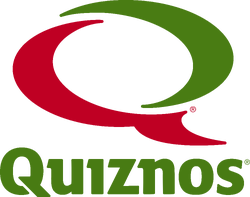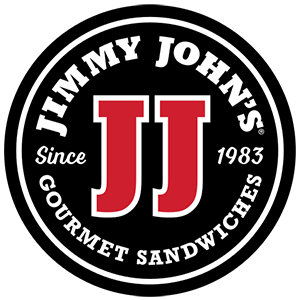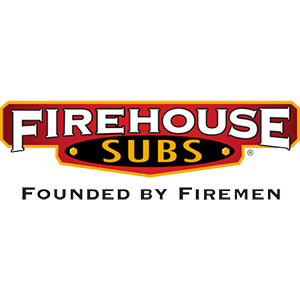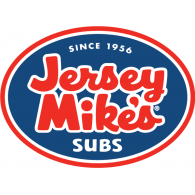How Many Quiznos Are Left? A Look at the Quiznos Franchise in 2025: Costs, Fee & FDD
Discover where the Quiznos franchise opportunity is at this time. Explore startup costs, profitability potential, and key differentiators that Quiznos is offering within the fast-casual dining industry. Learn more about this iconic toasted sub brand.
Table of Contents:
Quiznos is a well-established player in the fast-casual restaurant industry, known for its toasted subs and innovative approach to sandwiches. Founded in 1981 by Jimmy Lambatos in Denver, Colorado, Quiznos quickly grew in popularity due to its unique cooking method and emphasis on using fresh, high-quality ingredients. Lambatos, a chef himself, envisioned a sandwich chain that brought gourmet-style subs to the masses, with a focus on bold flavors and premium meats. Quiznos’ impact in the fast-casual market is significant, as it was among the first to introduce toasted sandwiches, which set it apart from other sub shops at the time.
The core products at Quiznos revolve around their toasted subs, including classics like the Italian, Spicy Monterey, and Turkey Bacon Guacamole. They offer a wide range of sandwiches, salads, and soups, catering to customers who value convenience without sacrificing quality. While their core market consists of busy professionals, students, and families seeking a quick, satisfying meal, they’ve also expanded their menu to include lighter options like flatbreads and wraps to appeal to health-conscious consumers. Quiznos’ focus on bold flavors and toasted bread continues to be a major draw for sandwich enthusiasts.
At its height, Quiznos operated over 4,500 locations globally. Today, they have around 300 locations in the U.S. and are actively seeking international expansion opportunities, with stores in more than 30 countries. This global presence allows them to serve a diverse customer base, offering regional menu variations while staying true to their core offerings. On an average day, each Quiznos location serves hundreds of customers, making it a favorite spot for lunch breaks and quick meals. However, a bad business model, combined with tough competition and economic downturns, led to a significant decline in store numbers.
Quiznos provides comprehensive support for franchisees, including extensive training programs that cover everything from day-to-day operations to marketing strategies. New franchisees undergo an intensive onboarding process that includes hands-on training at an existing store, along with guidance on site selection, store design, and staffing. They also offer ongoing support through regional managers and corporate teams, ensuring that franchise owners have the resources they need to succeed. This level of support makes Quiznos an attractive option for both experienced and first-time franchise owners.

Quiznos Franchise Insights
- The average initial investment for a Quiznos franchise ranges from $221,000 to $611,000, depending on the location, making it more affordable compared to many other fast-casual restaurant franchises. However, the leveraged buyout by a private equity firm significantly impacted the company’s financial stability, leading to poor management and financial strategies that hurt franchisees’ profitability.
- Quiznos offers a more compact store design with an average size of 1,200 square feet, allowing for greater flexibility in choosing locations with lower real estate costs.
- The brand’s operational model requires fewer employees per store, making labor costs more manageable compared to larger fast-food chains, which can result in better profit margins for franchisees.
- In 2014, Quiznos faced significant financial struggles that culminated in a bankruptcy filing, which severely impacted the company’s performance and led to a rapid closure of locations.
Quiznos Franchise Key indicators
Growth YOY (%)
-5%
vs industry 0%
Total U.S. Franchised Units
156
3-Year Failure Rate
59%
vs industry 10%
Sales-to-Investment ratio
1:1
How much does it cost to open a Quiznos franchise?
Understanding the potential investment size and capital requirements is crucial when considering opening a Quiznos franchise. These financial commitments, including initial franchise fees, equipment costs, and ongoing operational expenses, impact the feasibility and profitability of the venture. Thoroughly evaluating these factors ensures that potential franchisees are prepared for the financial responsibilities and can make informed decisions about their ability to sustain and grow the business, ultimately contributing to long-term success.
Min & Max Investment
Opening a Quiznos franchise involves several key costs, which are outlined in Item 7 of the Franchise Disclosure Document (FDD). You can see a breakdown of the costs to open a Quiznos below from the most recent Item 7 below:
Type of Expenditure
Minimum Investment
Maximum Investment
Initial Franchise Fee
$5,000
$5,000
Initial Franchise Support Fee
$25,000
$25,000
Leasehold Improvements
$50,000
$250,000
Architectural
$15,000
$60,000
Restaurant Equipment
$77,500
$175,000
Uniforms
$500
$500
Computer Systems, Online Ordering, Telephones, Point-of-Sale and Delivery Equipment
$3,000
$27,500
Security Deposits, Utility Deposits, Permits and Business Licenses
$3,600
$8,000
Training Expenses
$3,000
$5,000
Opening Inventory and Supplies
$3,000
$15,000
Additional Funds (3 months)
$35,000
$40,000
Total Estimated Initial Investment
$220,600
$611,000
Item 7 in the Franchise Disclosure Document (FDD) is the “Estimated Initial Investment” section. It outlines the total costs a franchisee can expect to incur when starting a franchise, including the initial franchise fee, equipment, inventory, real estate, and other startup expenses. This section is crucial because it provides potential franchisees with a detailed understanding of the financial commitment required, helping them assess affordability and plan their investment strategy effectively.
Required Capital
For Quiznos or similar franchises in the fast-casual restaurant industry, the required capital, liquid assets, and net worth can vary based on location and specific franchise terms. Based on industry standards for comparable franchises, here are some general estimates:
- Initial Investment The total investment for a Quiznos franchise typically ranges from approximately $211,000 to $611,000. Assuming that you will finance your franchise investment, you should plan to have 20% of the total investment amount in the form of equity (cash) for the investment.
- Liquid Assets Franchisees usually need liquid assets in the range of $100,000 to $150,000, though this can vary with specific franchisors or regions.
- Net Worth A net worth requirement of $350,000 to $500,000 is common across fast-casual franchises, ensuring financial stability throughout the startup phase.
These figures are estimates, and it’s important to confirm specific details with the franchisor during your due diligence process.
How much does a Quiznos franchise owner make?
Calculating the salary of a Quiznos franchise owner involves analyzing gross sales to determine total revenue, assessing operational efficiency to understand profit margins, and accounting for franchisor fees and additional expenses such as rent, utilities, and payroll. Effective management of these factors can significantly impact the profitability and financial success of a Quiznos franchise owner. This comprehensive financial analysis helps estimate net profits, from which the owner’s salary can be derived. A clear understanding of these factors ensures accurate salary projections and financial planning for sustainable business operations.
Quiznos Revenue & Gross Sales
Based on the most recent analysis, Quiznos franchises have a median gross sales of $417,000, showcasing the brand’s steady performance in the fast-casual dining sector. Quiznos responded to competition and franchisee dissatisfaction with various strategies, such as offering coupons for free sandwiches, which ultimately backfired. This figure highlights the potential for consistent revenue generation, driven by the brand’s established presence and loyal customer base.
Which key factors impact the average revenue performance of Quiznos franchisees?
The performance of U.S. Quiznos franchisee median gross sales is likely influenced by several key factors. First, the ongoing shift towards online ordering and third-party delivery services has expanded Quiznos’ reach, increasing sales opportunities beyond traditional in-store dining. Additionally, the brand’s ability to adapt its menu with innovative offerings, such as seasonal subs and healthier options, likely attracted a broader customer base. However, industry-wide challenges like rising food and labor costs could have impacted profit margins, even as sales remained stable. Furthermore, market saturation in certain regions and competition from other fast-casual brands may have affected growth. These combined factors contributed to maintaining steady sales compared to the prior year.
Quiznos Franchise Operational Costs
Operational costs for a Quiznos franchise are the ongoing expenses required to run the day-to-day operations of the business. Bosselman Enterprises, through its strategic partnerships with Quiznos, highlights the importance of these costs in maintaining business functionality and ensuring smooth operations. For a Quiznos franchise, key operational costs include:
- Food and Beverage Costs Expenses incurred from purchasing fresh ingredients like meats, vegetables, bread, and beverages necessary to prepare menu items. Maintaining inventory levels to meet customer demand is crucial.
- Labor Costs Wages, salaries, and benefits for employees, including hourly workers, managers, and kitchen staff. Labor management is a significant ongoing expense, especially in busy locations.
- Rent or Lease Payments The cost of leasing the property where the restaurant operates, including rent, property taxes, and insurance. This is a substantial fixed cost that varies by location.
- Utilities Expenses for electricity, water, gas, and internet, all of which are required for running kitchen appliances, lighting, and maintaining an optimal customer experience.
- Maintenance and Repairs Routine maintenance and unexpected repairs for kitchen equipment, ovens, refrigerators, and the overall upkeep of the restaurant to ensure smooth operations.
- Supplies and Inventory Costs for purchasing non-food items like packaging, cleaning supplies, uniforms, and office supplies that are essential for running the restaurant.
- Insurance Payments for various insurance policies such as property insurance, liability coverage, and worker’s compensation insurance to protect the business from risks.
Careful planning for these operational costs is critical for the financial success of your Quiznos franchise.
Quiznos Franchise Fees
When opening a Quiznos franchise, it’s important to understand the ongoing fees associated with operating the business. These fees are integral to maintaining the franchise relationship and ensuring the brand’s support and marketing efforts continue to drive success.
- Royalty Fee A 5% royalty fee is charged weekly based on gross sales from the prior week. This fee is automatically debited from your bank account and is subject to adjustments based on Quiznos’ designated weekly period.
- Marketing Fee Currently set at 2% of gross sales, this fee supports brand-wide marketing initiatives. It is also debited weekly, and Quiznos reserves the right to increase it up to a maximum of 5%, with no more than a 0.5% increase per year.
- Additional Fees There may be other ongoing costs, such as local marketing fees, technology fees, or training costs, depending on your specific franchise agreement and location.
Understanding these fees is essential for financial planning as you manage the daily operations of your Quiznos franchise.
Quiznos Franchise Earnings & Profit Margins
For a Quiznos franchise, median gross sales are reported at $417,000, which provides a solid benchmark for potential earnings. Owner-operators expect a yearly income of around $62,000 based on these figures and industry margins. This reflects the income you would earn after accounting for standard operational costs like food supplies, labor, and other regular expenses. While this income is a solid figure for a small business, it’s important to note that individual earnings will vary based on factors like location, operational efficiency, and customer demand.
Additionally, maximizing profitability can come from strategic cost management, boosting customer loyalty through marketing efforts, and leveraging Quiznos’ established brand name. An owner-operator model often allows for more direct control over daily operations, which could improve both revenue and profit margins when efficiently managed.
How to Open a Quiznos Franchise
Becoming a Quiznos franchisee involves a structured process that ensures you’re well-prepared to run the business. Here’s a step-by-step overview:
- Initial Inquiry You or your franchise specialist submits an initial inquiry basic information about your interest and background. You should also conduct thorough research on the franchise, including seeing all of the information available on the Vetted Biz franchise intelligence platform, including access to the most recent Franchise Disclosure Document (FDD).
- Franchise Application After expressing interest, you will complete a formal franchise application, providing details about your financial situation, background, and experience. This is used to determine eligibility.
- Interview and Discovery Day You’ll participate in an interview with the Quiznos team and possibly attend a Discovery Day. This allows you to visit the corporate headquarters or an operational store, meet key personnel, and learn more about the business model.
- Signing the Franchise Agreement After due diligence, if you decide to move forward, you will sign the franchise agreement. This legally binds you as a Quiznos franchisee and outlines your responsibilities.
- Training and Site Selection Quiznos provides an intensive training program that covers operations, marketing, and day-to-day management. Simultaneously, you will work with the franchise team to secure an approved location for your store.
- Build-Out and Permits Once a location is finalized, you’ll begin the build-out process to meet Quiznos specifications. During this time, you will also secure the necessary permits and licenses to operate your business.
- Grand Opening and Start of Operations After completing training, store construction, and final approvals, you will host your grand opening and officially begin operations as a Quiznos franchisee.
Pros & Cons
Pros
Affordable Entry Costs: Compared to other fast-casual franchises, Quiznos has relatively lower startup costs, making it more accessible for first-time franchisees.
Niche Market Appeal: Quiznos is known for its signature toasted subs, which sets it apart from many competitors, allowing franchisees to tap into a unique market niche.
Smaller Workforce: Compared to full-service restaurants, Quiznos operates with fewer staff members, which can lead to lower labor costs and easier management.
Flexible Store Formats: Quiznos offers smaller, more flexible store designs, allowing franchisees to operate in different types of locations with lower real estate costs.
Cons
Market Saturation: Quiznos once had a much larger footprint, and competition from other sandwich chains, like Subway, has impacted its overall market share.
Limited Growth: The number of Quiznos locations has declined significantly, which may reflect challenges in maintaining profitability across all locations.
Higher Food Costs: Quiznos’ focus on premium ingredients can lead to higher food costs, which may eat into profit margins, especially with fluctuating supply prices.
Brand Rebuilding: With a shrinking number of locations and competition growing, new franchisees may face challenges in rebuilding the brand’s presence in certain markets.
Operational Complexity: Running a fast-casual restaurant involves juggling food preparation, staffing, and customer service, which can be complex and time-consuming, especially for first-time franchisees.




